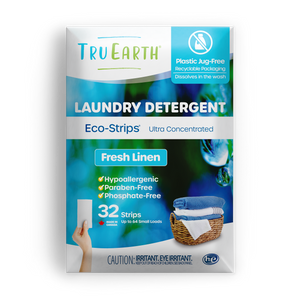Our daily routines, even the seemingly mundane ones, are under scrutiny in a world increasingly conscious of its environmental footprint. Dishwashing, a task we all tackle regularly, is no exception.
Traditional dishwashing methods often involve excessive water and energy consumption, not to mention using chemical-laden detergents. Below, you can discover practical ways to reduce your ecological impact while maintaining spotless dishes.

Hand Washing vs. Dishwashers
One common debate is whether hand washing or using a dishwasher is more eco-friendly:
Hand Washing
Hand washing is a common approach, but its efficiency can vary. Many believe it conserves water, but it largely depends on your technique. Running a constant stream of hot water can be wasteful.
To truly conserve water when hand washing, consider a more mindful approach. Start by filling one sink with soapy water and the other with rinse water. Instead of leaving the tap running, you can scrub and rinse dishes in batches, minimizing water use.
A major concern with hand washing is the use of conventional dish soap. These detergents often contain harsh chemicals that can harm aquatic life when they enter water systems. Choosing eco-friendly, biodegradable dish soap reduces your environmental impact and protects aquatic ecosystems.
Dishwashers
Modern dishwashers are designed for water efficiency, using sensors and technology to determine water needs based on the load size and level of soiling on the dishes. This results in optimal water usage, ensuring water is not wasted during cleaning.
Energy-efficient dishwashers, especially those with an Energy Star rating, use less electricity, particularly when run with full loads. Using these dishwashers reduces your household's energy consumption and lowers your carbon footprint. To maximize the eco-friendliness of dishwashers, avoid pre-rinsing dishes before placing them in the dishwasher.
Modern dishwashers can handle dishes with some food residue. By scraping off excess food into a compost bin and loading your dishwasher properly, you help reduce water wastage. This ensures that your dishwasher operates efficiently while minimizing water use.
Eco-Friendly Dishwashing Methods
Now that we've dissected the conventional options, let's explore more eco-friendly alternatives:
DIY Dishwasher Detergent
Commercial dishwasher detergents often contain phosphates and synthetic fragrances. Create your eco-friendly dishwasher detergent using these simple ingredients:
- 1 cup of washing soda
- 1 cup of baking soda
- 1/2 cup of citric acid
First, you mix the ingredients and store the mixture in an airtight container. Generally, you will use 1-2 tablespoons per load.
Natural Scrubbing Sponges
Traditional sponges are typically made from synthetic materials and can take centuries to decompose in landfills. Opt for natural scrubbing sponges made from materials like loofah or plant-based cellulose. These sponges are biodegradable and perform just as well as their synthetic counterparts.
Reusable Dish Towels
Rather than reaching for paper towels, which contribute to deforestation and waste, use reusable dish towels made from cotton or linen. You can wash and reuse them, making them an eco-friendly alternative that saves money in the long run.
Sustainable Dishwashing Brushes
Replace plastic dishwashing brushes with sustainable alternatives. Bamboo dish brushes, for instance, are biodegradable and have natural bristles, making them an eco-friendly choice for scrubbing dishes.
Mindful Water Usage
Reducing water waste is a significant aspect of eco-friendly dishwashing. Here's how to be more mindful of your water consumption:
- Use Low-Flow Faucets: Install low-flow faucets in your kitchen to reduce water usage without compromising water pressure.
- Fill the Sink: If you prefer hand washing, fill the sink with a moderate amount of water instead of letting it run continuously.
- Check for Leaks: Regularly inspect your faucets and pipes for leaks, as they can lead to significant water wastage over time.
Composting Food Scraps
Instead of tossing food scraps down the garbage disposal, compost them. Composting reduces kitchen waste, enriches the soil, and helps reduce the carbon footprint associated with waste management.
The Benefits of Eco-Friendly Dishwashing
Apart from being environmentally responsible, eco-friendly dishwashing methods offer several benefits:
- Cost Savings: Using fewer disposable items, such as paper towels or plastic scrubbers, can save you money in the long run.
- Healthier Living: Eco-friendly detergents and cleaning materials are often less harsh on your skin and respiratory system.
- Sustainable Practices: Embracing eco-friendly practices in one area of your life can inspire you to adopt more sustainable habits overall.

Embrace Sustainability: Eco-Friendly Dishwashing Solutions
Conventional dishwashing methods may seem inconsequential, but their impact on the environment is significant when practiced on a global scale.
You can make a positive change by adopting eco-friendly alternatives, such as mindful hand washing, using sustainable materials, and reducing water consumption. The greener clean minimizes your ecological footprint and sets a standard for a more sustainable, cost-effective, and healthier approach to daily chores.


